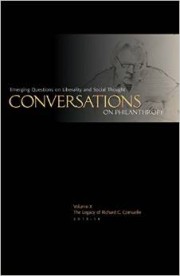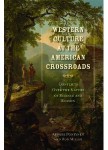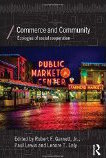How Does Technology Enhance or Diminish Our Capacity for Human Flourishing?
This collection of articles considers how technology, and the attention it requires, can enhance or diminish our capacity for creativity, community, and ultimately human flourishing.
Being Busy is Killing Our Ability to Think Creatively
From Big Think
By Derek Beres
Beres calls attention to the losses we suffer from living in a constant state of distraction. Creativity, he says, is one of the greatest casualties of our constant need to stay connected. He suggests that a balance between intentional productivity and leisure is necessary to perform deep work as well as to retain our mental and social health.
Attending to Technology: Theses for Disputation
From The New Atlantis
By Alan Jacobs
In the style of Martin Luther, Jacobs presents a series of theses to spur discussion about technology, attention, society, and human relationships. After considering the metaphysical aspects of technology and the self, he concludes that conviviality is an essential ordering principal for the technology we create and invite into our lives. Jacobs writes, “In my judgment, nothing is more needful in our present technological moment than the rehabilitation and exploration of Illich’s notion of conviviality, and the use of it, first, to apprehend the tools we habitually employ and, second, to alter or replace them. For the point of any truly valuable critique of technology is not merely to understand our tools but to change them — and us.”
By Josef Pieper
In this brief work, Pieper challenges the societal pressures toward total work and considers the value of leisure to our personal, social and societal well-being. In it he writes, “Unless we regain the art of silence and insight, the ability for nonactivity, unless we substitute true leisure for our hectic amusements, we will destroy our culture—and ourselves.”
From Conversations on Philanthropy
By Richard Gunderman
In this essay from 2008, Richard Gunderman examines the dimensions of human flourishing from happiness to suffering to fulfillment. Without touching on technology directly, he addresses the pursuit of superficial fixes that attempt to mimic, but not replace authentic flourishing. Some highlights from the essay are quoted below:
“Our calling is not to distract ourselves from life—it is to immerse ourselves fully in it. At our best, we plumb the depths of life, knowing and experiencing it as fully as we can. Far from indulging ourselves in every pleasurable sensation, this approach asks of us something much more akin to sacrifice—not sacrifice in the sense of foregoing something, but sacrifice in the sense of pursuing something.
What is most worthy of pursuit? What is the highest and best reality in the unfolding of our lives? If we understand the value of sacrifice, the happiest life is the sacramental life, one that acknowledges the higher purposes around which our lives can be organized, a life devoted to what is truly sacred. If this is so, the key to flourishing will lie less in mood-altering stimulants than in the answer to a question: What is most real, most authentic in our lives, and what can we do to bring it more fully into being?”




